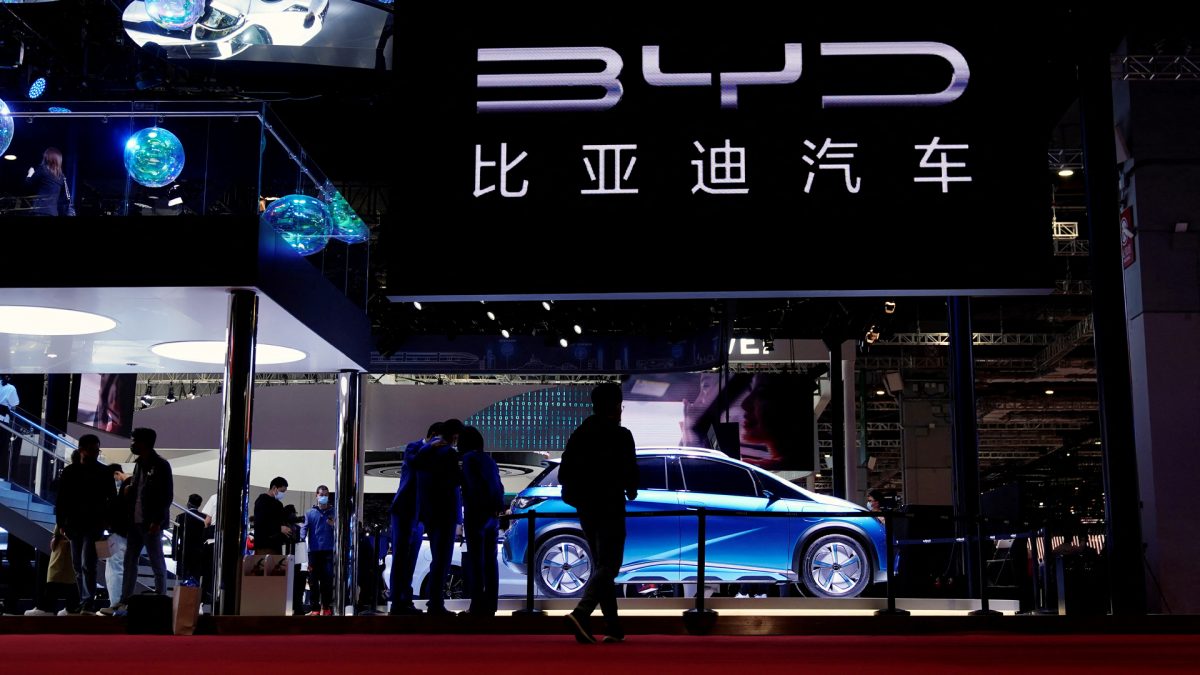In Morocco, Chinese companies are forming joint ventures and adjusting their governance structures to comply with US regulations. Morocco has become an attractive destination for due to its established car manufacturing infrastructure and favourable trade agreements read more
)
Following the United States’ new subsidies aimed at boosting domestic electric vehicle (EV) production and reducing Beijing’s supply chain dominance, Chinese manufacturers have begun investing in Morocco.
This move is part of a broader strategy to take advantage of the $7,500 credits available to car buyers in the US under the Inflation Reduction Act, a $430 billion law passed to combat climate change.
In Morocco, particularly around Tangiers and in industrial parks near the Atlantic Ocean, Chinese companies are setting up factories to produce parts for EVs.
These investments are part of a larger trend where Chinese manufacturers are expanding into countries with free trade agreements with the United States, such as South Korea and Mexico. However, Morocco has seen a particularly significant boom.
Since the signing of the Inflation Reduction Act by President Joe Biden, at least eight Chinese battery makers have announced new investments in Morocco. These investments include plans from major companies like ByteDance, Alibaba Group, and OpenAI, targeting the increased demand from American carmakers like Tesla and General Motors.
Kevin Shang, a senior battery analyst at Wood Mackenzie, noted that Chinese companies are eager to participate in the growing US EV market, despite new US and European tariffs on Chinese vehicle imports.
The Inflation Reduction Act includes rules that limit subsidies for companies with significant ties to US adversaries, requiring carmakers to source critical minerals and battery parts from manufacturers with less than 25 per cent Chinese ownership.
In Morocco, Chinese companies are forming joint ventures and adjusting their governance structures to comply with US regulations. For instance, CNGR, a leading Chinese battery cathode producer, announced a $2 billion project in partnership with Morocco’s Al Mada investment group.
Although CNGR holds a slight majority stake, the company is prepared to modify its board composition to qualify for US tax credits.
Other notable Chinese investments in Morocco include Gotion High-Tech’s $6.4 billion deal to build Africa’s first EV battery factory and a joint venture between Youshan (backed by LG Chem and Huayou Cobalt) aimed at supplying the North American market.
These projects emphasize Morocco’s strategic trade ties with the US and Europe.
Morocco has become an attractive destination for these investments due to its established car manufacturing infrastructure and favourable trade agreements.
The country hosts over 250 automotive manufacturers, including major players like Stellantis and Renault, and exports nearly $14 billion in cars and parts annually.
However, the rise of protectionist policies and tariffs poses challenges. Ryad Mezzour, Morocco’s Minister of Industry and Trade, expressed concerns that such policies could hinder future investments, despite the current influx.
In the US, the Biden administration’s EV regulations have sparked criticism. Representative Jason Smith, a Missouri Republican, argued that these regulations could result in American tax dollars benefiting Chinese companies.
The US Energy and Treasury departments are working to balance reducing reliance on Chinese manufacturers while ensuring enough vehicles qualify for subsidies.
China’s significant investment in Morocco highlights the complexities of the global EV supply chain. Despite efforts to reduce dependency, experts like Chris Berry believe that Chinese influence in the lithium-ion battery supply chain will persist for years to come.

 2 months ago
22
2 months ago
22
)
)
)
)
)
)
)
)
)
)
)
)
)
)
)
)
)
)
)
)
)
)
)
)
 English (US) ·
English (US) ·